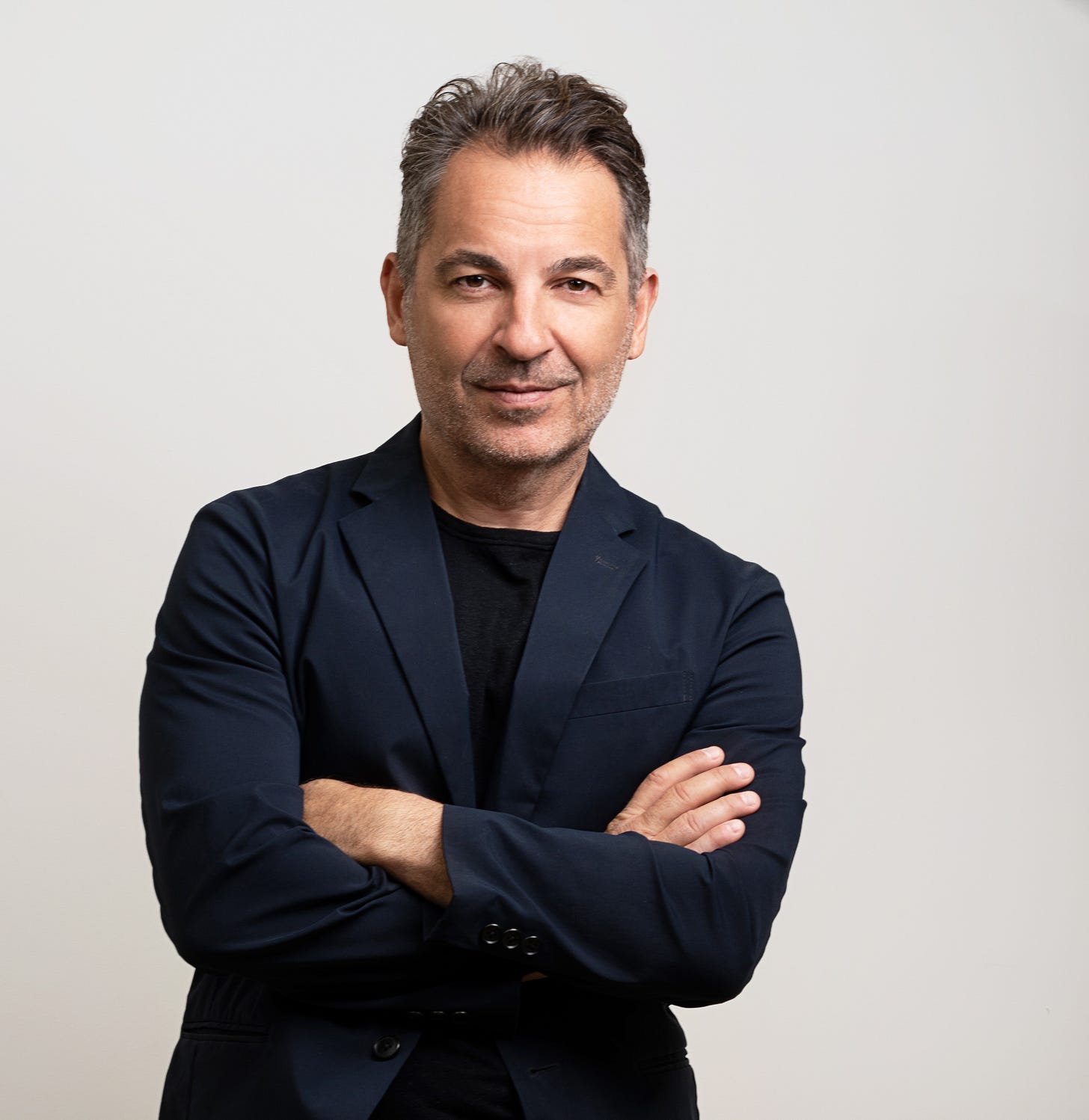Becoming Successful Through Difficulty
Things don't always get easier. They may never be that way. You can learn to succeed anyway more often than not.
Frustration or anger can set in when progress, breakthrough and success isn’t happening as we envisioned and have worked towards. It doesn’t make sense to us.
“We all wait in life for things to get easier. It will never get easier,” says Kara Lawson, the head coach of the Duke University Blue Devils women's basketball team and a Olympic gold medalist and formerly a professional player, NBA assistant coach and television analyst.
“What happens is you handle 'hard' better. You become someone who handles hard stuff better. That's a mental shift that has to happen in each of your brains.”
Getting to that mindset can seem elusive. It’s more important than we may know.
“If you go around waiting for stuff to get easier in life, it's never gonna happen,” Lawson insists. “So make yourself a person that handles 'hard' better. Because if you have a meaningful pursuit in life, it will never be easy.”
This may be challenging for many people to emotionally receive because of the irritation or pain. Coming to an understanding the reality and developing the cognitive skills to manage stress will take rewiring of thoughts, beliefs and actions.
“One of the reasons its so hard to deal with adversity is connected to our expectations of how life should be rather than how it actually is,” says Kelly Abanda, a certified neuroscience coach and facilitator at Better Brain Project.
“The trick to handling (figurative) ‘lemons’ is recognizing that their presence does not automatically mean you didn't deserve champagne or that you'll never have the champagne,” she says. “They are simply another step in the journey of getting to your champagne.
“Think back to a hardship you navigated in the past. Though unexpected, you found a way through and are likely a stronger person as a result. Hardship can either strengthen you or diminish you.”
The accuracy and quality of perception is a key check point.
“The key is reframing how you perceive it. Instead of viewing challenges as obstacles, see them as opportunities to grow stronger and more capable,” says Eric Malka, the co-founder of The Art of Shaving, the managing partner of Strategic Brand Investment and author of the newly released “On the Razor’s Edge: The Story of The Art of Shaving.”
“You must acknowledge how you feel but not let those feelings define your actions.
Going deeper in the mind, it is important to practice behavior that can become a habit.
“Psychologically, it’s about resilience — developing a mindset where setbacks are just steps toward something greater,” Malka says.
Difficulty can become at least somewhat welcomed because of the value of it.
“Stress and adversity are like weight training; every time you lift the ‘weight,’ you get stronger and more equipped for the next challenge.”
What a person communicates to themselves about it matters.
“I’ve learned through both my work and my own experiences that accepting the reality of ‘hard’ starts with shifting the narrative,” says Anand Mehta, executive director at the AMFM Mental Health Treatment Center.
“In our facility, we often encourage patients to sit with discomfort rather than fight it. This might mean acknowledging the pain of a setback but also recognizing that it’s not permanent.
“Over time, you begin to see that resilience isn’t about avoiding hard things, it’s about how you process and respond to them emotionally and cognitively.”
“Accepting that ‘hard’ is part of the journey is difficult because it challenges our sense of control and comfort,” says V. Frank Sondors, founder at Salesforge.ai, a company which combines AI with human expertise to optimize sales processes.
“We often expect things to go smoothly, and when they don’t, it feels like a personal failure. When facing setbacks in business, instead of letting frustration take over, I focus on what the situation can teach me and how I can apply that lesson moving forward."
“The real change happens when we stop seeing ‘hard’ as something to avoid and start embracing it as part of the process. Successful people view challenges as part of their growth, rather than something they need to avoid.”
What we may come to think, whether fleetingly or habitually, may not always be true.
“Life isn’t unfair because it’s ‘hard,’ it’s just life,” says Elvis Rosales, clinical director at Align Recovery Centers. “The sooner we normalize that difficulties are part of the human experience, the less power they hold over us.”
From there, regular practice before the storm is preparing you for it.
“People handle tough situations more effectively when they train their minds for adversity during calm periods,” Rosales adds. “Just as athletes practice before the big game, we can strengthen our ability to face challenges by setting small, intentional hurdles for ourselves daily.
“For instance, commit to doing something uncomfortable like having a difficult conversation or tackling a task you’ve been avoiding. Through time this will build your mental endurance.”
Learning and Teaching Ourselves About Doing ‘Hard’ Better
“The most important thing to teach ourselves is how to pause,” Mehta says. “Stress and adversity trigger survival instincts and it’s easy to react impulsively.
“Instead, practice pausing, take a deep breath, reflect on what’s within your control and decide your next step intentionally.”
A mental model has proven effective.
“Handling ‘hard’ requires three key shifts,” Malka says. “Perspective: Understand that difficulty isn’t punishment; it’s preparation. Adaptability: Accept that plans will change and success often requires you to pivot. Discipline: Focus on small, consistent actions rather than waiting for motivation.
Moving into challenges creates strength of response.
“The real change happens when we stop seeing hard as something to avoid and start embracing it as part of the process. Successful people view challenges as part of their growth, rather than something they need to avoid,” Sondors says.
“Learning how to use adversity as fuel for resilience, rather than letting it drain your energy, can make a big difference.”
Choosing to look at “hard” through the lens of a micro perspective can lessen the intensity of emotions being experienced.
“Break it down,” Rosales says. “When life feels overwhelming, it’s often because we’re looking at the entire mountain instead of the next step. So focus on one small, actionable task at a time and celebrate each success along the way.
“Rehearse resilience,” he adds. “Before the next challenge arises, ask yourself, ‘What’s the worst-case scenario? How would I handle it?’ Mentally rehearsing difficult situations helps you feel more prepared and less reactive when they occur.
“Detach from outcomes,” Rosales advises. “A big reason ‘hard’ feels unbearable is that we tie our emotional well-being to specific results. Instead of fixating on what might go wrong, focus on what you can control like your effort, your attitude and your actions.”
“Building resilience and overcoming challenges has been shown to involve three core areas that can really optimize your performance,” says Michael Anderson, a licensed professional counselor and clinical director at Healing Pines Recovery.
“The first is emotion regulation or emotional self-control, which is the ability to effectively calm and de-escalate feelings when faced with conflict. Deep breathing and journaling for instance are effective tools and techniques to ensure that you have control of yourself.
“The second important area is cognitive restructuring which entails the identification and transformation from destructive or negative unhelpful constructs to inverted. Words of failure such as, ‘I can’t do this’ can be changed to ‘I will try and learn from this.’
“The third crucial skill is self-kindness. Treating yourself with kindness in failings helps you to persist through hardship with a more constructive attitude.
“It’s easier to bear with hardship when you understand that you are human and give yourself some slack. Rather than beating yourself up for failing, being kind to yourself appreciates effort and is more viable as a step toward resilience.”
Why Hard is So Challenging and The Difference Between Those Who Succeed More Often and Those Who Get Stuck
“For most of us, it is quite hard learning these skills because our inbuilt mechanism to deal with stress is based on evolution — fight, flight or freeze,” Anderson says.
“Without consciously training oneself, it is very convenient to get caught in a cycle of fight and avoidance or over-whelming activities. And that push differentiates people who triumph and those who stagger with the triad.
“Resilient persons schedule their routines, tackling their ability to cope with real-life events with a therapist, themselves or other alternative sessions. They consider effortful processes, ‘hard’ for them to deal with, to be doors to success instead of barriers.”
“The difference lies in mindset and habits,” Malka states. “Those who thrive in adversity embrace discomfort. They understand it’s a necessary part of growth. They also have a clear purpose that fuels their determination, even when things get tough.
“On the other hand, those who struggle often fear failure or expect an easy path. This mindset prevents them from developing the resilience and grit needed to push through.
“Success isn’t about avoiding difficulty; it’s about mastering the art of enduring and overcoming it.”
Uncertainty and fear should not act as blocks or induce fear.
“Handling hard things is tough because it forces us to step into the unknown, which can feel scary and overwhelming,” Mehta says. “The difference I’ve observed in those who succeed lies in support systems and mindset.
“People who approach challenges with curiosity, self-compassion and a willingness to fail, tend to navigate them better. Equally important is having a community, whether it’s friends, family or therapists, who remind you that you’re not alone in the struggle.”
Knowing what is natural important when in faced with doing “hard” better.
“It’s difficult because we’re naturally wired to avoid discomfort,” Rosales says. “The brain’s survival mechanisms prioritize short-term comfort and safety, which often means avoiding challenges or giving up when things get hard.
“But we know that growth lives in discomfort and learning to sit with it is where transformation happens.
“The difference between those who grow through difficulty and those who don’t is that:
“People who thrive under pressure don’t just stumble upon resilience, they cultivate it. They put themselves in situations help them become better and test their limits, knowing that this will strengthen their capacity to handle adversity.
“Resilient people see challenges as an avenue for learning or as good opportunities rather than threats. Instead of saying, ‘Why is this happening to me?’ why not ask, ‘What can I learn from this?’ This mindset creates a sense of purpose even in difficulty and motivates them to persevere.
“Those who struggle often fall into patterns of avoidance or fixed thinking and believing they can’t change or improve their ability to handle hard times. But I think with intention and practice, even this mindset can be unlearned.”
While learning that it’s necessary to know that “hard” is part of life and the necessity is to do it better and not wish life and challenges would be easier, it is helpful to additionally learn something else.
“Accomplishment can be measured in many ways,” Abanda says. “Often, those who feel less accomplished are measuring themselves with harsh, even perfectionist, standards.
“All-or-nothing thinking blocks feeling successful because even when you achieve great milestones, you'll quickly shift focus to what remains to be done. To shift this, create small, practical steps that take you in the direction of your goals.
“And as you reach those small markers, celebrate… Your brain responds well to the chemicals created during celebration, so help it by celebrating small wins, even when it feels silly.”

To sponsor this publication, place an ad or have links published, check this page.








